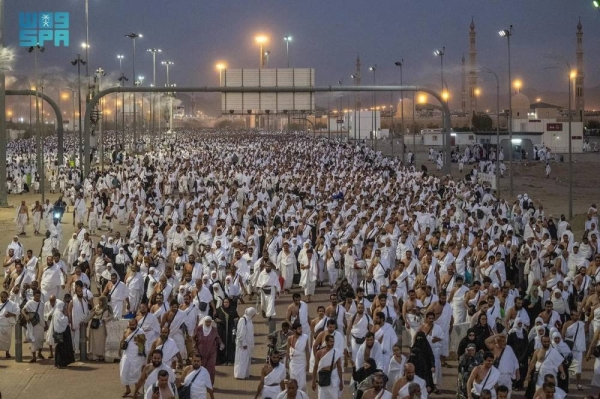The Hajj pilgrimage is a sacred journey for Muslims to the holy sites of Mecca and surrounding areas. One of the important rituals of Hajj is the overnight stay at the Holy Site of Muzdalifah, following the descent from Arafat. After sunset on Saturday, pilgrims began their journey to Muzdalifah, reciting talbiyah along the way. The Saudi government has made significant efforts to ensure the pilgrims have a comfortable and organized experience during this part of their journey.
Upon arriving in Muzdalifah, pilgrims perform the Maghrib and Isha prayers, following the Sunnah of the Prophet. The night is spent at Muzdalifah, and after the dawn prayer on Sunday, the first day of Eid al-Adha, pilgrims head to Mina to complete several important rituals. These include throwing pebbles at Jamarat Al-Aqabah, performing the sacrifice ritual, and offering Fajr prayer. Some individuals, such as the weak and women, are permitted to leave after midnight.
The Day of Sacrifice, which falls on Sunday, is a crucial day for pilgrims as they perform four main rituals. After arriving in Mina from Muzdalifah, they engage in stoning at Jamarat Al-Aqba, sacrificing animals, shaving their heads, and heading to Mecca to perform Tawaf Al-Ifada and Sai’, two other important Hajj rituals. This day coincides with Muslims celebrating the Eid Al-Adha festival outside of the pilgrimage.
In the remaining days of Hajj, pilgrims focus on the ritual of stoning at each of the three Jamarat, representing pillars symbolizing Satan. This ritual is performed over the course of two or three days before the conclusion of the pilgrimage. The journey of Hajj is a spiritually enriching experience that requires dedication, patience, and adherence to the teachings of Islam. The rituals performed at Muzdalifah and other holy sites hold deep significance for pilgrims as they seek forgiveness and blessings from Allah.
Overall, the overnight stay at Muzdalifah is a key part of the Hajj pilgrimage, marking a transition in the journey towards spiritual fulfillment and purification. The pilgrimage is a reflection of the unity and diversity of the Muslim community, as millions of believers from around the world come together to perform sacred rituals and seek closeness to Allah. The Hajj experience is a once-in-a-lifetime opportunity for many Muslims, and the preparations made by the Saudi government and the dedication of the pilgrims contribute to a meaningful and memorable journey. The rituals performed at Muzdalifah and other holy sites during Hajj serve as a reminder of the faith, devotion, and commitment of the pilgrims to their religion and their Creator.
















